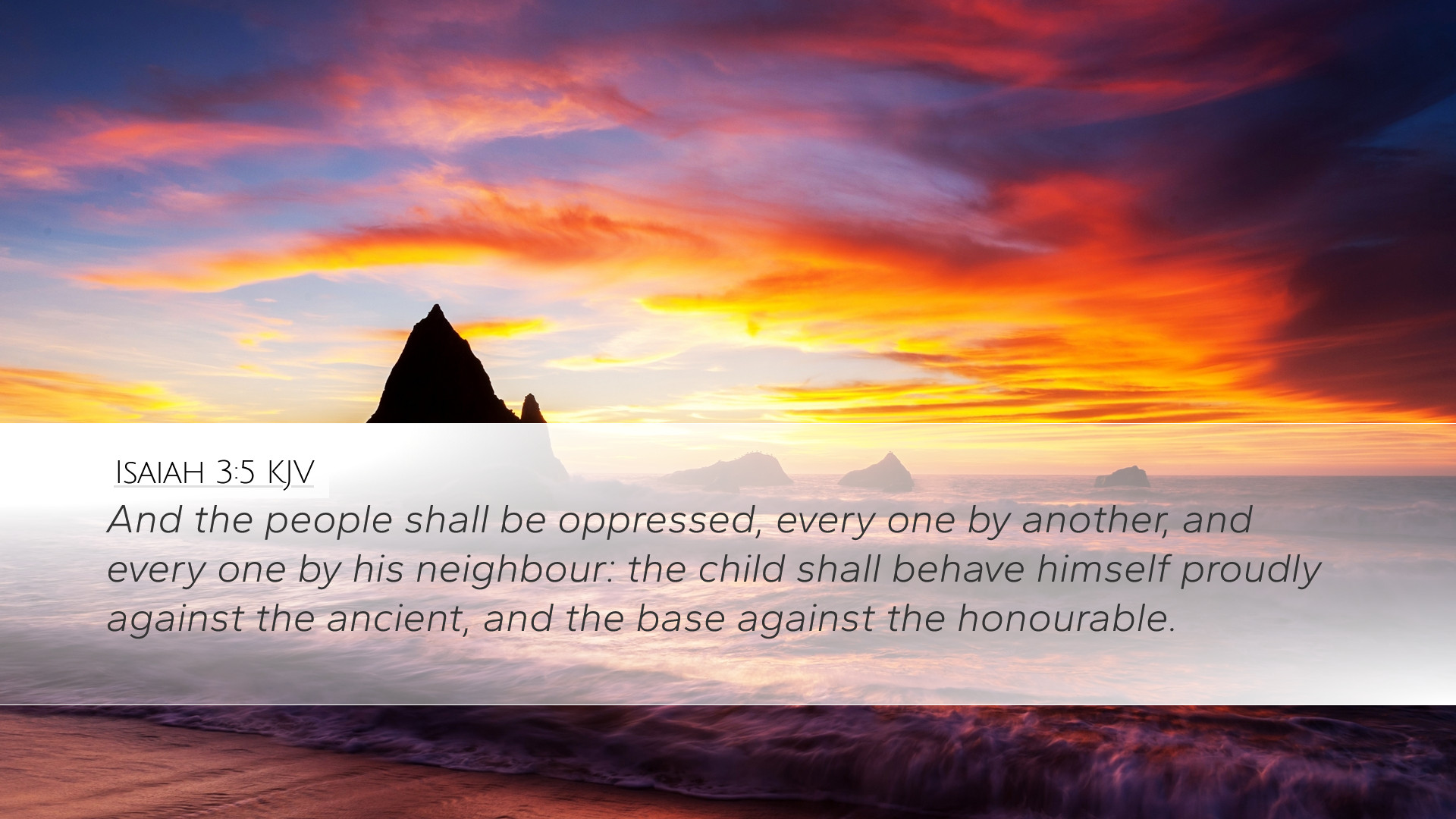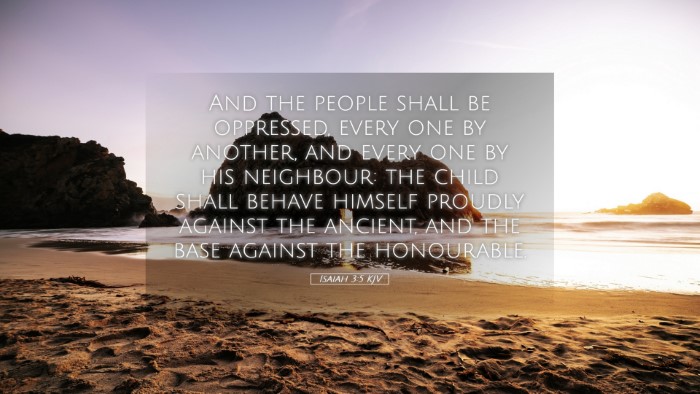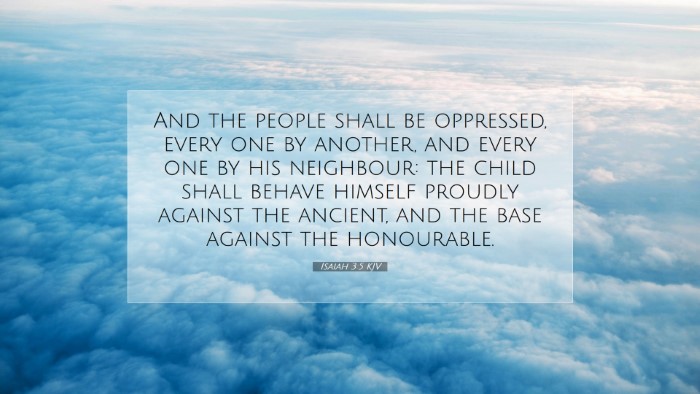Commentary on Isaiah 3:5
Verse Reference: Isaiah 3:5 - "And the people shall be oppressed, every one by another, and every one by his neighbour: the child shall behave himself proudly against the ancient, and the base against the honourable."
Introduction
The verse Isaiah 3:5 presents a grim picture of societal breakdown and moral decay within Judah. This passage is part of a broader section in Isaiah where the prophet speaks of judgment against Israel for its sins. The commentary on this verse draws from insights by Matthew Henry, Albert Barnes, and Adam Clarke, highlighting its theological, sociological, and practical implications.
Contextual Overview
Isaiah prophesies during a time of great political instability and spiritual decline in Judah. The themes of oppression, societal discord, and rebellion against authority are prevalent throughout this chapter. The impending judgment serves as a wake-up call for the people to return to righteousness.
Exegesis of Isaiah 3:5
Oppression Among Neighbors
Matthew Henry remarks that the verse depicts a society where interpersonal relationships are characterized by strife and oppression. The "people shall be oppressed" signifies the loss of mutual respect and charity, leading to a hostile environment. This captures the essence of communal breakdown where individuals fail to honor one another, as love for neighbor is replaced with jealousy and resentment.
Intergenerational Conflict
Albert Barnes notes the striking element of conflict between generations encapsulated in “the child shall behave himself proudly against the ancient.” Here, the young display insolence towards the elderly, and wisdom is disregarded. This reflects a broader societal trend where experience and tradition are dismissed, culminating in a culture where folly reigns supreme.
Base Against the Honourable
According to Adam Clarke, the phrase “the base against the honourable” indicates a reversal of moral order. The “base” refers to those of low moral character or status who rise against the honorable, or those in rightful authority or status. This inversion signifies a time when ethical standards are upended, reinforcing the idea that societal collapse is marked by the elevation of the unworthy and the discrediting of the esteemed.
Theological Implications
This passage not only reflects a historical reality but also conveys theological truths about divine judgment and human sinfulness. The breakdown of social order is often a reflection of God’s displeasure with a nation. Henry emphasizes that such conditions reveal the absence of God’s favor, as people engage in self-destructive behaviors and forsake godly principles.
Sociological Insights
From a sociological perspective, Barnes illustrates the social dynamics at play: oppression festers in environments where moral and ethical standards are undermined. When societies lack a stable moral compass, interpersonal relationships suffer, ultimately leading to conflict not only between individuals but across generations. This situation calls for a deep examination of contemporary society, drawing parallels between Isaiah's world and today's moral dilemmas.
Practical Applications
This verse and its insights are highly relevant for pastors and theologians. Here are a few practical applications:
- Promoting Mutual Respect: Church leaders should emphasize the importance of love and respect within the community, reflecting on how biblical principles can guide relationships.
- Teaching Intergenerational Dynamics: Educators within the church can leverage this text to discuss the value of wisdom from older generations and instruct the youth on honoring their elders.
- Addressing Moral Decay: Sermons and teachings should focus on moral integrity and the consequences of societal sins, encouraging repentance and restoration.
Conclusion
Isaiah 3:5 serves as a sobering reminder of the consequences of abandoning God’s ways. Through the insights of public domain commentaries, we gain a greater understanding of the moral and spiritual implications of this verse. It implores believers to examine their own hearts and communities and to pursue a life that honors God and one another.


